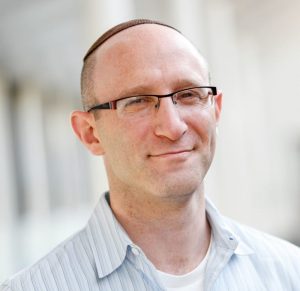Leviticus The Human Soul is a Candle of God: Finding Meaning in Existence


(Also read this blog on The Huffington Post)
My wife’s grandmother is 94 years old. She lives alone in the same house she has lived in for decades. She is remarkably healthy, but is at an age when many people would have already moved into a retirement community or an assisted living facility. But she has no interest in moving.
As we age, leaving our homes is often associated with trading a sense of independence and the life we have known for a life of greater care and supervision. It is a step, we rightly fear, towards what Dr. Bill Thomas refers to in Atul Gawandi’s Being Mortal as the three plagues of nursing homes: boredom, loneliness, and helplessness. Gawandi explains how the approaches of assisted living and nursing homes, despite the best of intentions, often reinforce a slide into purposelessness as they understandably but problematically prioritize safety and security over a full life. As Gawandi writes, “we want autonomy for ourselves and safety for those we love.”
In leaving our homes, we risk not just losing the life we have known, but our reasons for living. We have a deep need to be needed, an existential longing to be of use. In Jewish tradition, our essential role in the world is built into the fabric of existence, as we are God’s partners in creation, in repairing the world and bringing holiness to it.
We see a profound example of human partnership with God in this week’s parasha, Emor. In the framing statement to the section detailing the sacred Jewish calendar, the Torah says that God told Moses to tell the people of Israel: “There are Divine moments (moadei hashem) that you shall declare, and they will be sacred events and gatherings.”
Holy times, moments that have been imbued with certain Divine qualities, are available to us. They are the fixed holidays of our sacred calendar, but their Godly potential is made manifest through human awareness and celebration. In this way, God’s emergence in the world on these occasions depends on us.
We are now in the midst of counting the Omer, the period of time between the freedom of Passover and receiving Torah on Shavuot. It is a time of preparation during which we are invited to focus on how we respond to our freedom, living a life of integrity and responsibility and holiness–that is, a life of Torah. It is a special time to be in relationship with the Divine, and it is dependent on our daily counting. In focusing on and announcing the Omer each evening, we shape this time period into a mikra kodesh, a sacred communal event.
In this conception, God needs us to actualize the holiness of time. We are agents of God’s revelation in the world, and have a critical role to play in the world in facilitating our own human experience of sacredness.
We hear an echo of our significance in the world in the conclusion of the wonderful Jewish morning prayer, “Modeh Ani”. In it, we acknowledge and express gratitude to God for restoring our soul to us, an expression (as some interpret it) of God’s “great trust in us.” In the cosmic order, God is relying on us–not just those who are young or healthy, but everyone. All human beings share in this trust and responsibility. We yearn for a sure sense of this cosmic, Divine need for us in those moments when we wonder why we are here and strive to make our lives matter.
The great 20th-century theologian Rabbi Abraham Joshua Heschel writes (in Between God and Man): “There is a need for our lives, and in living we satisfy it.” Just by being, we serve a purpose, and our will to live is “our answer to that need, an agreement not an impulse.” When we assume “that the self is not the hub, but a spoke, neither its own beginning nor its own end,” we move ourselves from a purely utilitarian evaluation of life, and awaken to a life of service and a sense of each person’s infinite worth. As Heschel writes, “If man is not more than human, then he is less than human.”
Aging can challenge our ability to feel this sense of worth, purpose, and necessity. This is a challenge that should be borne not by elderly people alone, but by all of us. We need to create contexts for living in which our elders feel and know that they are needed. And we all have to be people who view and treat others as infinitely valuable and necessary. What would the world, and our care for those in their seniors years, look like if we could see each person as essential and serving a cosmic purpose? What if we each saw part of our own role and purpose in the world as helping to facilitate other people’s sense of their own significance?
These qualities are not wholly absent from the world of elder care, but we have a long way to go in addressing the plagues of boredom, loneliness, and helplessness. It is the sacred task of all of us, not only those who work professionally with elderly people, to shape a world in which each person can know their own importance and their own sacredness, can feel that their existence is—as the book of Proverbs calls the human soul—no less than “a candle of God”.
Rabbi Daniel Klein was director of admissions at the Rabbinical School and director of student life at Hebrew College. He currently serves as the College’s Dean of Students.

